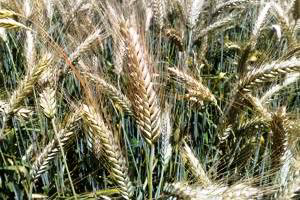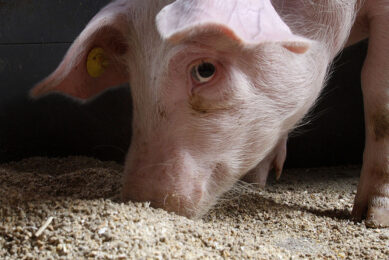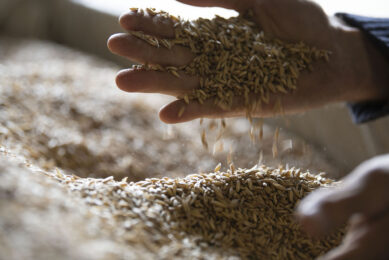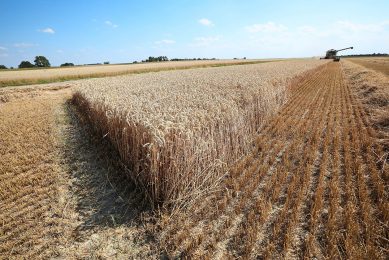Berkshire triticale a growing grain option in 2013

Last season Dawson Bradford grew 500 hectares of Berkshire triticale at ‘Hillcroft Farms’ at Popanyinning in Western Australia’s Great Southern, where he mills all the feed for his 700 sow piggery.
As a supplier of pigs to leading WA small goods manufacturer D’Orsogna, Mr Bradford must maximise his feed conversion ratio, hence being able to utilise Berkshire’s high digestible energy content of up to 13.9 MJ DE/kg (about 0.5 MJ DE/kg more than the average energy in other triticale varieties) is a big production plus.
To manage problems with frost, inherent in all triticale varieties, he planted Berkshire on high ground and to extend the flowering window beyond the September frost risk period grazed it from late June to early July.
“I’ve achieved yields above three tonnes per hectare and while it hasn’t out performed barley here, it has done better than wheat,” Mr Bradford said
Berkshire triticale was bred through the Pork CRC to be a high yielding grain with a higher digestible energy content than contemporary varieties. It yields well, especially on an energy basis and supports excellent growth performance in pigs.
With financial backing from the pork industry, via the Pork CRC, the variety will now be commercially available for planting in 2013.
Murdoch University Professor John Pluske, who leads a Pork CRC project to increase awareness of Berkshire triticale throughout the supply chain, said that because triticale was not widely grown in WA, it may not be an obvious crop for grain growers to consider in their rotations.
“We’ve been talking with grain growers, agronomists, grain buyers, feed manufacturers and pork producers about Berkshire because we believe it has benefits for the pig industry and also for the grain industry,” Professor Pluske said.
“Berkshire’s ability to handle acidic and waterlogged soils gives grain growers an alternative option for these soils, but also because it has performed well across soil types it could be considered as a replacement for wheat in some years,” Professor Pluske stated.











